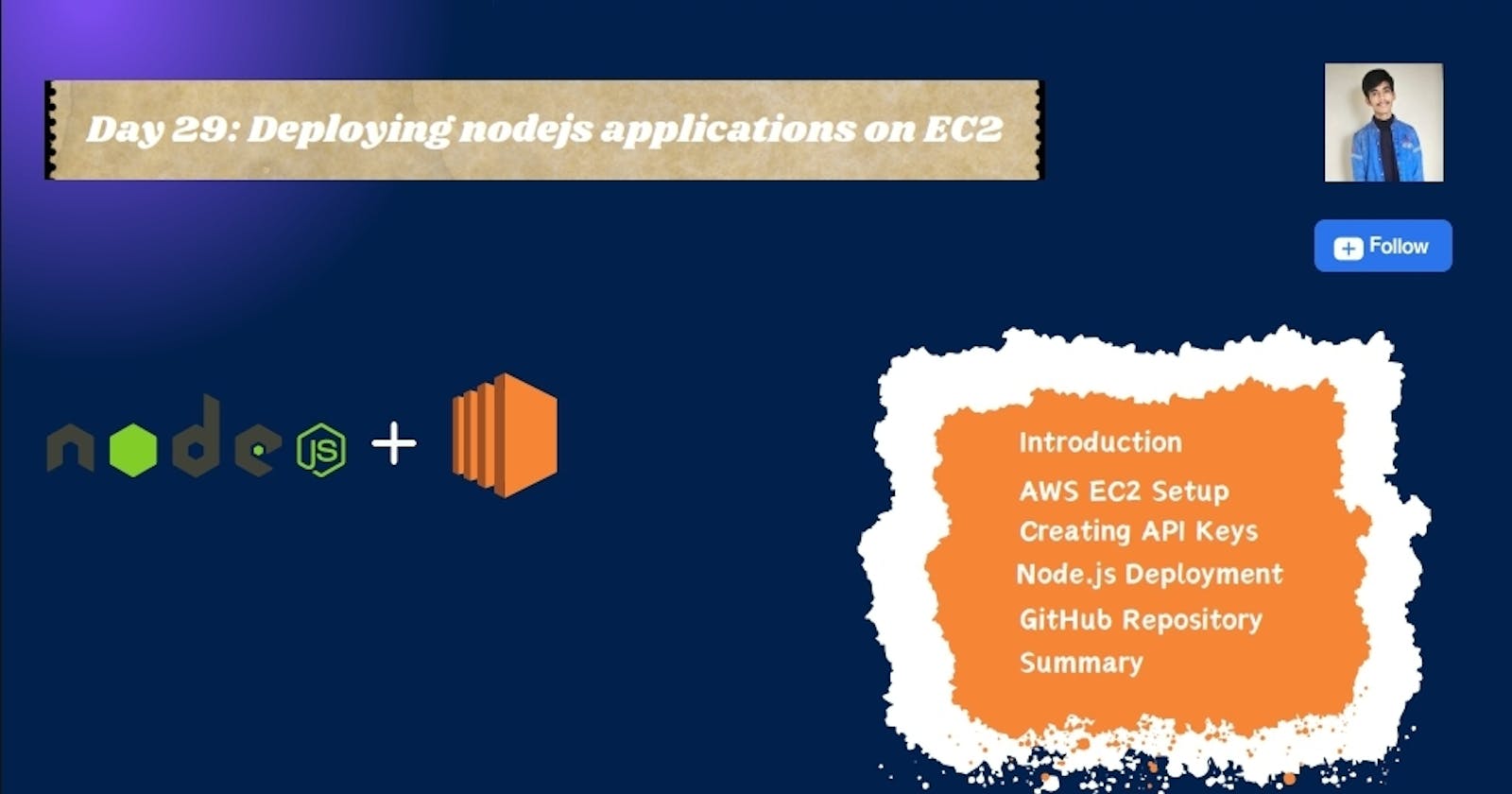🚀Introduction
Today in this blog, we will deploy a Node.js app on AWS. The blog provides a step-by-step guide on how to deploy the app. Let's elevate our Node.js app to the cloud and watch it shine in the digital firmament!
First, you will need to create an EC2 instance on AWS and set up an SSH key pair for authentication. Once this is done, you can use an SSH client (such as the Terminal on MacOS or PuTTY on Windows) to connect to the EC2 instance.
To update the outdated packages & dependencies type command :
sudo apt update

Install git if it is not installed. It will allow you to clone your remote repository. To install git type command
sudo apt-get install giton your terminal. In my case, git was already installed, so I didn't need to install it again.Now install Node.js on your instance. It will manage dependencies using npm. To install nodejs on your instance use command
sudo apt install nodejs.After successfully installing nodejs on your instance check version of nodejs by typing commandnode -v.
Now we need to download npm (Node Package Manager) to manage packages. To download npm type command
sudo apt install npm. After successfully installing npm on your instance check version of npm by typingnpm -v
Now clone the repository. To clone the repository use commad
git clone <url>.
After repository get cloned type command
ls, suppose your file name is xyz then type commandcd xyz. After getting file open set environment variable file.Steps to set environment variable Type command
touch .file_nameit creates an empty file. We use dot(.) before file_name because it's making the file hidden in the directory.This is often used for configuration files, like environment variable files, where you might not want them to be easily visible in directory listings.
To see hidden files in directory use command
ls-aEdit the file using command
vim file_namein that file write the below-mentionedTo see what you have written in file use command cat
file_nameDOMAIN= " " PORT=3000 STATIC_DIR="./client" PUBLISHABLE_KEY=" " SECRET_KEY=" "To see what you have written in file use command cat
file_nameTo understand it better, take a look at the photo provided below.

Tip: To PUBLISHABLE_KEY & SECRET_KEY visit the website provided below create account after that click on developer after that click on API Keys in that you will get the keys.
To understand it better, take a look at the photo provided below.


Install npm again. First, we installed npm on the instance, and now we need to do it in the repository's folder. To install npm type command
npm install.After successfully installing npm run npm by typing command
npm run startApplication will not run. To run the application you need to edit inbound rule to 3000 port in Security group.



Now your application is ready to run copy your instance public IP address and paste it on Google or browser whatever you use and use (:) colon after pasting IP address and type port number. Ex- 39.637.378.0:3000

Summary
In this post we covers the steps required to deploy a Node.js application on AWS EC2.
Thanks for reading to the end; I hope you gained some knowledge.❤️🙌
